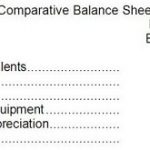What Does a Bookkeeper Do? Duties & More

Bookkeepers must be diligent and meticulous when recording transactions, as even minor mistakes can have significant implications for a company’s finances. This means that you don’t record an invoice until it is actually paid. Similarly, you don’t notate outstanding bills until you actually pay them.
Recording Depreciation and Amortization: Accounting for Asset Value Changes
The following subsections focus on continuous learning, certification, and career pathways for bookkeepers. A Bookkeeper is responsible for recording and maintaining a business’ financial transactions, such as purchases, expenses, sales revenue, invoices, and payments. They will record financial data into general ledgers, which are used tips for finding the right tax accountant to produce the balance sheet and income statement. Online bookkeeping services can align an organization’s resources properly by daily recording sales and purchase transactions. Without failing, bookkeepers have to record business transactions into the designated accounting software to know exact cash inflow and outflow numbers.
Check for errors in reports.
We are looking for a skilled Bookkeeper to maintain our financial records, including purchases, sales, receipts and payments. This Bookkeeper job description template is optimized for posting on online job boards or careers pages. Add your specific bookkeeping responsibilities to attract the most qualified candidates for your company.
- You dreamed of bringing joy to your community through unique products, not crunching numbers.
- It lets you know how you’re doing with cash flow and how your business is doing overall.
- Though bookkeepers mostly cover the administrative side, you’ll still need to be customer service-oriented.
- As a bookkeeper, you oversee the first steps of the accounting cycle, while an accountant typically handles the last two.
Bookkeeper responsibilities include:
Consistency is key, and adopting a daily routine to update your books can help. Handling finances is often the trickiest part of running a small retail store. You dreamed of bringing joy to your community through unique products, not crunching numbers. Yet, bookkeeping is essential to your business’s health and longevity.
Save time with expert help
This means recording transactions and saving bills, invoices and receipts so you have all the data you need to run reports. Accounting software makes it easy to store these documents and reference them in case of an accounting error or audit. Before you take on any small-business bookkeeping tasks, you must decide whether a single- or double-entry accounting system is a better fit. The entry system you choose impacts how you manage your finances and how your bookkeeping processes will work. Some accounting software products automate bookkeeping tasks, like transaction categorization, but it’s still important to understand what’s happening behind the scenes.
This includes keeping track of earnings, expenses, receivables, payables, and even procurement. Bookkeepers are responsible for managing financial records, https://www.kelleysbookkeeping.com/the-difference-between-margin-and-markup/ and one of their core skills is attention to detail. This skill is crucial in ensuring accuracy and minimizing errors in complex data sets.
Bookkeeping is the process of keeping track of a business’s financial transactions. These services include recording what money comes into and flows out of a business, such as payments https://www.wave-accounting.net/ from customers and payments made to vendors. While bookkeepers used to keep track of this information in physical books, much of the process is now done on digital software.

We also hope this post has helped you decide on whether you should handle your books yourself or hire a bookkeeper to manage them for you. You may be familiar with accounting basics and have a bookkeeping duties list. However, there are circumstances where hiring a professional bookkeeper might be more beneficial to you. Some companies keep both written and local digital records for their books, while others export their data to accounting software. The benefit of backing up data to accounting software is that most of these tools automatically back up their data into cloud storage.
However, effective time management, organizational skills, and a solid understanding of bookkeeping principles can help mitigate stress in the role. This helps in accurately tracking income and expenses, and aids in understanding the financial health of the business. Modern accounting software is the repository of all financial transactions for your company and can generate requisite reports in real-time. So even if you have accounting software, odds are, you still need a bookkeeper to manage the software, enter data, file reports, identify errors and keep everything current.

Below is a sample bookkeeper job description that you can customize to meet the needs of your business. One of the best things you can do to ensure your books balance properly is to follow the three golden bookkeeping rules. Generally, if your assets are greater than your liabilities, your business is financially stable.

When working with organizations, mostly, bookkeepers must deal with invoicing. Knowing how to read invoice documents helps them locate information about a transaction between buyers and sellers. The ability to produce, comprehend and interpret invoices allows bookkeepers to track revenue entering a business and understand existing payments.
Keep on learning and practicing to succeed in your bookkeeping career. Your good character can exceed your skills, so it’s essential that you develop the right characteristics expected from a bookkeeper. When you stick to good practices, your reputation will precede you and gain you a loyal clientele.
This method records both invoices and bills even if they haven’t been paid yet. This is a highly recommended method because it tells the company’s financial status based on known incoming and outgoing funds. Because the funds are accounted for in the bookkeeping, you use the data to determine growth. Bookkeepers manage a company’s financial accounts, ensuring they are accurate and easy to review. Their work plays an important role in the operation of a successful business, which can have very many transactions in a single day, let alone a week, month, fiscal quarter, or year.
By searching for new ways to make your job more efficient, you will never become outdated for the company or business you work for. Nowadays we are noticing a tendency to merge both of these roles into one. The line that used to divide accounting from bookkeeping is slowly disappearing, with each one absorbing something from the other. With all the transactions and documents you need to keep track of, working in an organized manner is a must. More importantly, keeping things organized will give you peace of mind that everything is where it should be and you can produce accurate data because of it. Some clients also expect bookkeepers to have a working knowledge of accounting software like QuickBooks®.
Managing both accounts payable and receivable is of the most essential bookkeeping duties and responsibilities. The advent of accounting software significantly lessened the tediousness of bookkeeping by handling debits and credits for you in the background. And technologies like optical character recognition (OCR) and bank feeds have come just short of fully automating the traditional bookkeeping process. Data entry can now happen as soon as you snap a photo of a receipt with your smartphone. And reconciliations happen almost in real time through daily bank feed maintenance, making the end-of-month closing process a snap. Now one bookkeeper can manage the bookkeeping for several businesses in fewer than eight hours a day.


